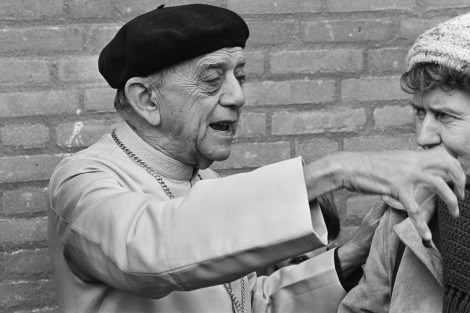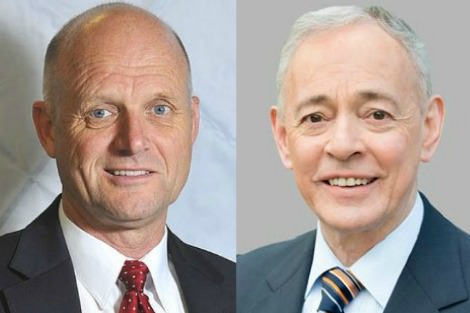Keywords: Preferential Option For The Poor
-

EDUCATION
- Michael Furtado
- 28 September 2023
38 Comments
As Australia grapples with educational inequality, those in the Catholic education system must ask: how do we test for a clear commitment to Catholic Social Teaching and the seminal role it plays in enunciating the guiding principles of Catholic education, particularly in regard to it being offered, ‘first and foremost … to the poor’?
READ MORE
-

RELIGION
- John Warhurst
- 12 January 2023
The Church must speak up to be relevant, but those who seek to ‘speak for the church’ must be brave. They risk exposing themselves to claims of bias unless they stick to a very narrow agenda and speak in extremely measured terms. Yet if they are too bland they risk being irrelevant to the sharp end of political debate and their intervention becomes little more than a symbolic ritual.
READ MORE
-

RELIGION
- John Warhurst
- 26 April 2022
22 Comments
The Church must speak up to be relevant, but those who seek to ‘speak for the church’ must be brave. They risk exposing themselves to claims of bias unless they stick to a very narrow agenda and speak in extremely measured terms. Yet if they are too bland they risk being irrelevant to the sharp end of political debate and their intervention becomes little more than a symbolic ritual.
READ MORE 
-

FAITH DOING JUSTICE
- Daniel Nour
- 15 April 2019
We've witnessed this confluence of economic opportunity with aid and development in Indonesia, where our support of local eco-tourism has revived communities with self-sustaining employment opportunities while preserving local rainforests from being felled for wood.
READ MORE 
-

RELIGION
- Frank Brennan
- 12 September 2018
This book is a warning of the terrible price we shall pay if we do not follow Pope Francis' leadership. Frank Brennan launches Anthony M. Maher's The Forgotten Jesuit of Catholic Modernism: George Tyrrell's Prophetic Theology. Australian Centre for Christianity and Culture, 11 September 2018
READ MORE
-

RELIGION
- Frank Brennan
- 08 May 2017
1 Comment
Our Church is presently a strained, outdated social institution with an exclusively male hierarchy and clergy. But it is also the privileged locus for us to be called to the banquet of the Lord sharing theology and sacrament which have sustained the hearts and minds of similar pilgrims for two millennia. Thank God for Pope Francis who is showing us the way, helping us to find meaning in our changing and chaotic world, putting a fresh spring in the step of all those Catholics holding in tension the prophetic and the practical, the theological and the humanist, the tradition and the contemporary reality.
READ MORE
-

RELIGION
- Frank Brennan
- 29 March 2017
1 Comment
'We need to be more focused on grace, Christ and God's word, rather than just on law, the Church and papal utterances. But today, I will draw more on law, the Church and the Pope to point us towards those more fruitful domains: grace, Christ and God's word. Our future visioning needs to focus more on the gospel imperatives including the option for the poor and the dignity of all persons, including those who are non-believers.' Address to Catholic Health Australia's Catholic Governance Symposium, 27 March 2017
READ MORE
-

RELIGION
- Ann Deslandes
- 02 September 2016
19 Comments
Many Brazilians remember the 'Red Bishop' as much more than a defender of human rights. For these people, Helder Camara is included reverently in the litany of rogues who drew the ire of church and state authorities by demanding both do a better job of embodying a message of social justice. It was a powerful idea to grow up with: that this imposing and defining institution I had been born and baptised into contained a rebellious truth that often demanded we go against the institution's own grain.
READ MORE 
-

AUSTRALIA
- Binoy Kampmark
- 23 March 2016
19 Comments
The idea that these laws are, as Twomey writes, 'more conducive to representing the genuine choice of the people in electing their Senate' is untrue. It is a view expressed by Greens leader Senator Richard Di Natale, who suggested 'the Senate that's delivered after the next election is the one people vote for'. What these voting reforms actually serve to do is give the false impression of eliminating manipulation while diluting Australia's political base in favour of monochrome party politics.
READ MORE 
-

INTERNATIONAL
- Barry Gittins
- 01 April 2015
15 Comments
Former Australian Salvation Army world leader General Eva Burrows, who died on 20 March, tried in vain to engage the former British PM in making the preferential option for the poor. ‘Margaret Thatcher was a disappointment,’ the General said. ‘I felt she didn’t have a deep, true feeling for the poor. I invited her to come out on the soup run indirectly and said it wouldn’t be a media event, we’d go incognito, but the answer was no.’
READ MORE 
-

EUREKA STREET TV
- Peter Kirkwood
- 25 March 2015
7 Comments
A hallmark of Francis' papacy has been his calls for 'a Church which is poor and for the poor'. He has given new currency to the sometimes controversial concept 'preferential option for the poor', which has strong associations with Liberation Theology. Sydney theologian Rohan Curnow recently completed his PhD thesis and a book on the history and application of the 'preferential option'.
READ MORE 
-

AUSTRALIA
- Brendan Long
- 02 March 2015
5 Comments
As the freshly minted Social Services Minister, Scott Morrison has moved quickly to soften the tough stance he took in the Immigration portfolio. But it won't necessarily be easy. Patrick McClure has presented him with a massively controversial report on welfare reform which, if acted upon, would significantly reduce the incomes of a million marginalised Australians.
READ MORE 